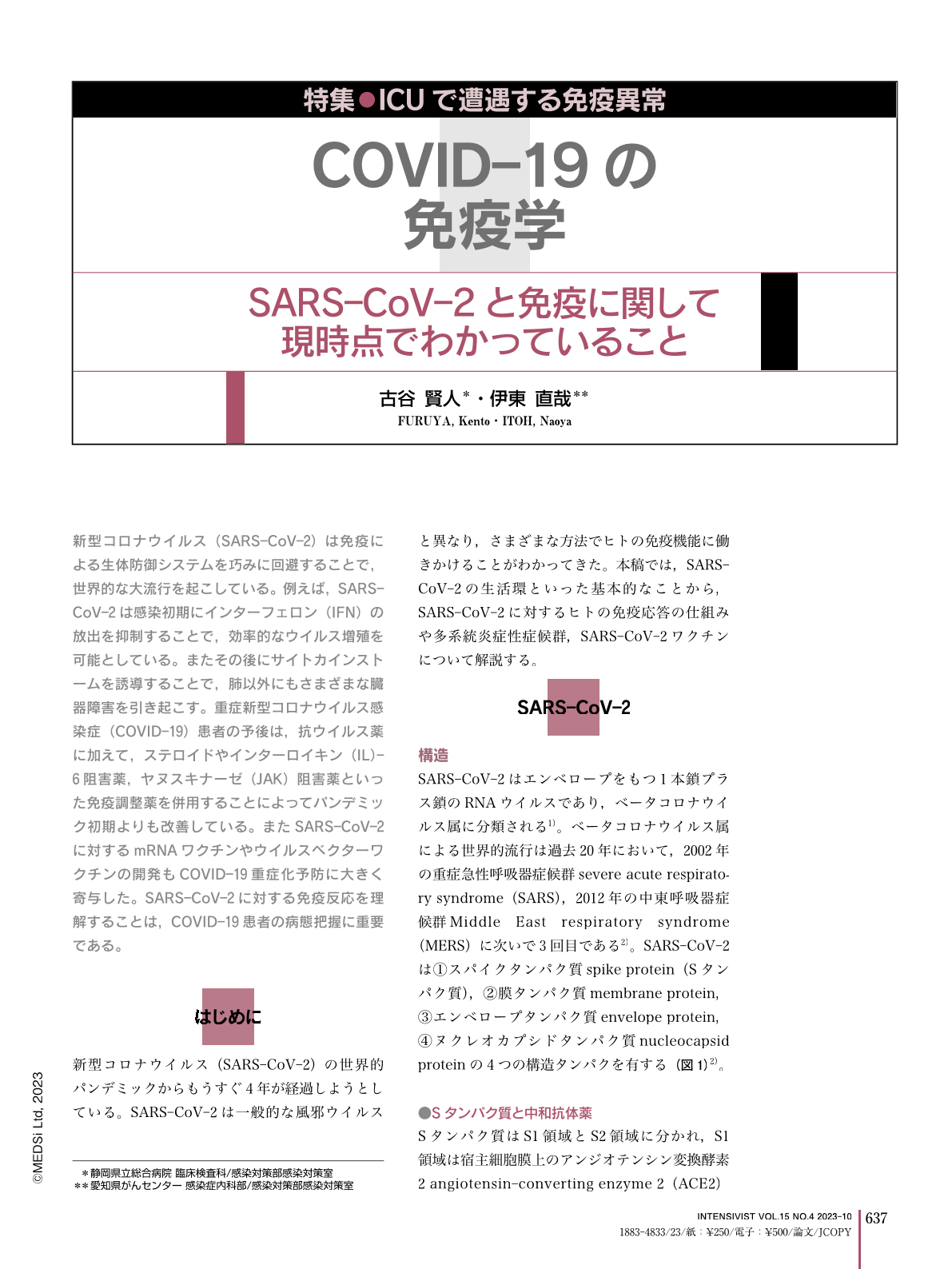Japanese
English
- 有料閲覧
- Abstract 文献概要
- 1ページ目 Look Inside
- 参考文献 Reference
新型コロナウイルス(SARS-CoV-2)は免疫による生体防御システムを巧みに回避することで,世界的な大流行を起こしている。例えば,SARS-CoV-2は感染初期にインターフェロン(IFN)の放出を抑制することで,効率的なウイルス増殖を可能としている。またその後にサイトカインストームを誘導することで,肺以外にもさまざまな臓器障害を引き起こす。重症新型コロナウイルス感染症(COVID-19)患者の予後は,抗ウイルス薬に加えて,ステロイドやインターロイキン(IL)-6阻害薬,ヤヌスキナーゼ(JAK)阻害薬といった免疫調整薬を併用することによってパンデミック初期よりも改善している。またSARS-CoV-2に対するmRNAワクチンやウイルスベクターワクチンの開発もCOVID-19重症化予防に大きく寄与した。SARS-CoV-2に対する免疫反応を理解することは,COVID-19患者の病態把握に重要である。
SARS-CoV-2 is causing a global pandemic by adeptly evading the human immune defense system. For instance, SARS-CoV-2 suppresses the release of interferon during the initial phases of infection, facilitating efficient viral replication. Subsequently, it triggers a cytokine storm, resulting in damage to diverse organs beyond the lungs. The prognosis of patients with severe COVID-19 has improved since the early stage of the pandemic with the use of immunomodulators, such as steroids, interleukin-6 inhibitors, and JAK inhibitors, in addition to antiviral agents. The development of mRNA vaccines and viral vector vaccines targeting SARS-CoV-2 has also made significant contributions to mitigating the severity of COVID-19. A thorough understanding of the immune response to SARS-CoV-2 is crucial for comprehending the pathogenesis of COVID-19 in patients.

Copyright © 2023, MEDICAL SCIENCES INTERNATIONAL, LTD. All rights reserved.


